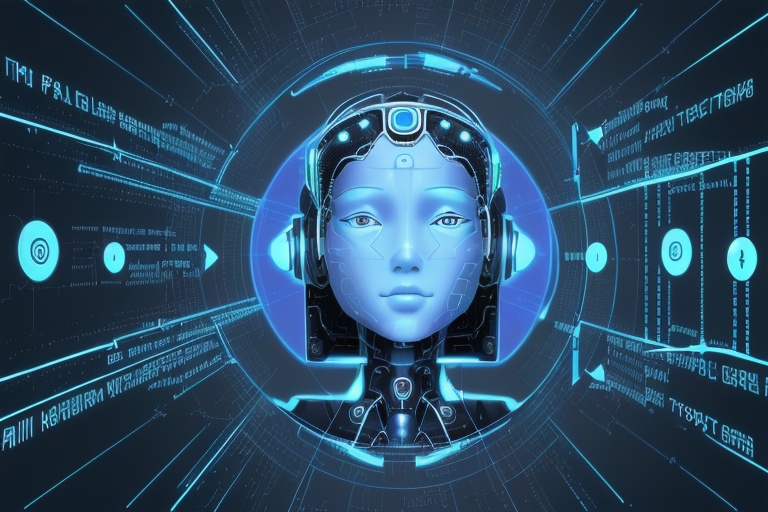Artificial intelligence (AI) and machine learning (ML) represent two pivotal and converging areas of technology that promise to redefine an array of industries, from manufacturing to healthcare. Despite being intertwined, AI and ML are distinct disciplines that prop up the broader data-driven landscape of innovation. As we set out to navigate this intricate field, we'll demystify each concept, elucidate their unique characteristics, and explore their transformative applications.
Artificial intelligence (AI) and machine learning (ML) represent two pivotal and converging areas of technology that promise to redefine an array of industries, from manufacturing to healthcare. Despite being intertwined, AI and ML are distinct disciplines that prop up the broader data-driven landscape of innovation. As we set out to navigate this intricate field, we'll demystify each concept, elucidate their unique characteristics, and explore their transformative applications.
Understanding Artificial Intelligence
AI is the embodiment of computer systems equipped to execute tasks that typically necessitate human intelligence. This field is not reserved for mere imitation; it rather aspires to surpass human capabilities, offering sophisticated analysis and automated responsiveness to dynamic situations. Present-day AI applications are deeply integrated into smart devices and various digital assistants, such as Siri, and form the backbone of consumer and business technology solutions.
Within the corporate sphere, AI is revolutionizing operations by utilizing techniques like natural language processing (NLP) and computer vision. From streamlining workflows to expediting decision-making and engendering dynamic customer engagement with chatbots, AI is not just a technological advancement—it is a competitive catalyst for companies across the financial, manufacturing, healthcare sectors, and beyond.
Decoding Machine Learning
Macine learning stands as a subset of AI, concentrating on the capacity of systems to autonomously interpret data, discern patterns, and enhance decision-making through experience. ML equips machines with the ability to refine their understanding and actions by analyzing a vast array of data inputs, effectively learning from trial and error, much as humans do.
On the cutting edge of ML lies deep learning—a complex approach that employs extensive neural networks akin to the human brain, enabling the deciphering of intricate patterns and facilitating predictions without human intervention.
Practical Applications of AI and ML
These technologies bear significant implications across various industries. Let's delve into a few notable examples:
Manufacturing: In the realm of manufacturing, the quest for efficiency is paramount. AI streamlines this sector by automating procedures, preempting machine failures, scheduling timely maintenance, and managing energy use with precision—all through the calculated analysis of data.
Banking: The financial sector prioritizes safeguarding data and preventing fraud. AI and ML are at the forefront of cybersecurity, enhancing fraud detection mechanisms, confirming identities swiftly, and even fielding routine customer inquiries through intelligent systems like chatbots.
Healthcare: The healthcare industry is a goldmine of data, which AI leverages to great effect. From analyzing electronic health records for decision support to forecasting patient readmissions and mining the nuances of patient-provider dialogue, AI is invaluable for improving patient outcomes and operational efficiency.
Integrating AI and ML into Your Business
In order to harness AI and ML's full capabilities, it is imperative for organizations to cultivate a workforce that is adept in these technologies. The Fu Foundation School of Engineering and Applied Science at Columbia University offers an Artificial Intelligence executive certificate program, which is pivotal in preparing professionals to steer their companies' AI strategies. This comprehensive program, spanning various areas such as algorithms, ML, data privacy, and robotics, is tailored for team leaders and technical experts eager to deepen their grasp of AI's practical applications. It's a flexible learning path that can be completed concurrently with one's career over 9 to 18 months, permitting direct application of new knowledge in real-world settings.
Artificial intelligence and machine learning are not mere buzzwords—they are powerful forces reshaping the business world and technological innovation. Grasping their nuances is not just an academic exercise but a strategic imperative for those positioned at the vanguard of enterprise transformation. As technology continues to evolve, a foundational understanding of AI and ML will be vital for leveraging their expansive potential in an ever-more-intelligent future.
Information for this article was gathered from the following source.




